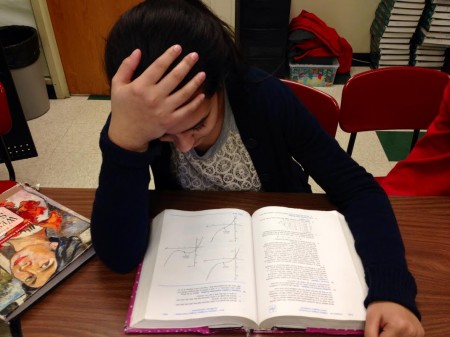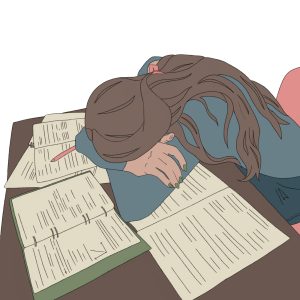Cramming for tests proves unhelpful
April 17, 2014

Every student has done it: putting off studying for the exam until the last minute, then pulling a caffeine-fueled all-nighter in an attempt to cram as much information into their heads as they can.
“I always seem to put off studying until the night before the big test, and I end up staying up really late and it’s hard to focus the next day,” said Jacqueline Lazar, 10.
According to research from UCLA, sacrificing sleep for extra studying time, whether cramming for a test or finishing heaps of homework, is counterproductive.
Regardless of how much a student studies each day, if a student sacrifices sleep time, he or she is likely to have more problems, not less, the next day.
“Sometimes I start studying and then give up because I know I will be too tired the next day,” said Elina Panteleyeva, 12.
Some tips on how to stop cramming are:
- Learn major concepts first
- Plan ahead
- Start studying a week before
- Stay relaxed
- Choose one portion to focus on
The students who averaged more study time overall tended to receive higher grades, but, success may depend on finding strategies to avoid having to give up sleep to study.
“I know it’s really bad to cram the day before a test and I force myself to start studying days before,” said Jamie Pescovitz, 11.
For more information on how to stop cramming, click here.






